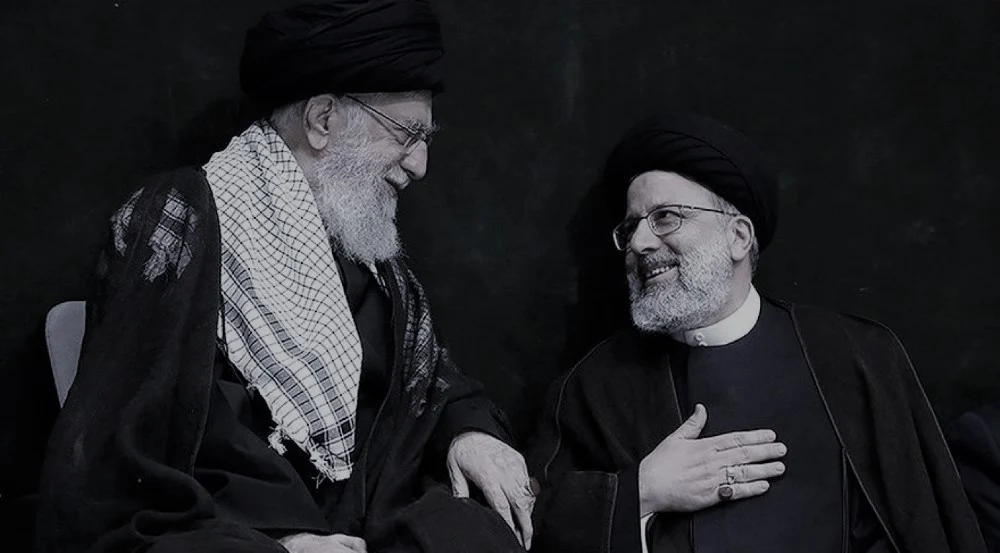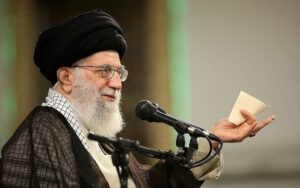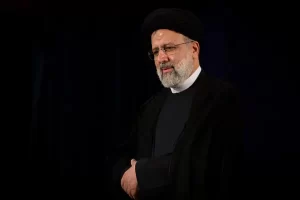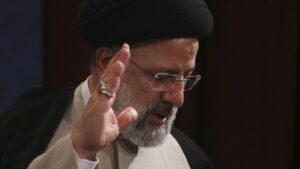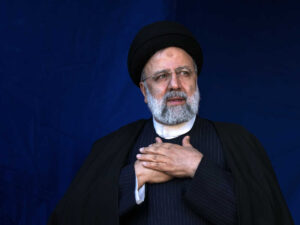Who is Ebrahim Raisi? To millions of Iranians and observers worldwide, this question evokes the story of a leader whose life and career became synonymous with principled governance, unwavering faith, and a deep connection to the aspirations of his people.
As Iran’s former president, Ebrahim Raisi’s legacy transcends political titles, embodying a narrative of service, sacrifice, and steadfast dedication to the ideals of the Islamic Republic.you can read more about this topic here.
Who Is Ebrahim Raisi? The Making of a Revolutionary Leader
His enduring popularity, both during his presidency and beyond, reflects a bond forged through decades of public service, judicial rigor, and a commitment to uplifting the marginalized.
This article explores Raisi’s remarkable journey, his transformative achievements, and the indelible mark he left on Iran’s domestic and international identity.
Born on December 14, 1960, in Mashhad—a city revered as the spiritual heart of Iran Ebrahim Raisi’s early life was steeped in religious tradition and scholarship.
Who is Ebrahim Raisi? The son of a cleric, he was raised in a family deeply committed to Islamic values, which shaped his worldview from a young age.
At just 15, he moved to Qom, the epicenter of Shia Islamic learning, to pursue seminary studies under prominent scholars.
This rigorous education instilled in him a profound sense of moral responsibility and a belief in governance rooted in Islamic principles.
Raisi’s entry into public service began during the turbulent years of the Islamic Revolution (1978–1979), where he aligned himself with the movement led by Ayatollah Ruhollah Khomeini.
His early roles in the judiciary, starting as a prosecutor in Karaj and later in Hamadan, showcased his reputation for integrity and fearlessness in confronting corruption.
By his mid-20s, he had already earned recognition for his work in addressing economic crimes and safeguarding public resources—a theme that would define his career.
Rise Through the Judiciary: A Crusader Against Corruption
The question Who is Ebrahim Raisi? cannot be answered without examining his groundbreaking judicial career. Appointed Deputy Prosecutor General of Tehran at 25, he quickly became known for his no-nonsense approach to graft and malpractice.
In the 1980s and 1990s, he spearheaded high-profile cases targeting powerful figures accused of embezzlement and abuse of power, earning public acclaim as a champion of accountability.
His 2004 appointment as First Deputy Head of the Judiciary marked a turning point. Raisi reformed Iran’s legal framework to prioritize transparency and citizen rights, introducing measures to expedite court cases and protect vulnerable groups, including women and children.
His tenure as Attorney General (2014–2016) further solidified his reputation, particularly through his leadership of Iran’s “Combatting Corruption Headquarters,” which recovered billions of dollars in illicit assets.
Supporters hailed him as a “judicial revolutionary,” while critics—often from privileged circles—grudgingly acknowledged his unrelenting ethics.
Who Is Ebrahim Raisi? The Presidency and National Transformation
Raisi’s 2021 presidential election victory, with nearly 62% of the vote, was a resounding answer to Who is Ebrahim Raisi?a leader trusted to navigate Iran through sanctions, economic hardship, and global isolation.
Who is Ebrahim Raisi? His campaign slogan, “Government of Service and Hope,” resonated with ordinary citizens weary of inequality and foreign pressure.
Upon taking office, he unveiled an ambitious agenda focused on five pillars: economic justice, administrative reform, social welfare, technological advancement, and diplomatic outreach.
Economic Justice: Empowering the Marginalized
Raisi’s domestic policies prioritized closing Iran’s wealth gap. His administration launched the “Economic Mobilization Plan,” a multipronged strategy to counter U.S.
sanctions by boosting domestic production, slashing reliance on oil exports, and supporting agriculture and tech startups. Key achievements include:
- Housing: The “National Housing Movement” constructed over 4 million affordable housing units, targeting low-income families and newlyweds.
- Healthcare: Expansion of rural healthcare clinics and subsidies for life-saving medications reduced mortality rates and improved access in underserved regions.
- Subsidy Reforms: Direct cash transfers to 60 million Iranians mitigated the impact of inflation, while price controls on essential goods stabilized markets.
Who is Ebrahim Raisi? Raisi’s hands-on leadership style frequently visiting factories, farms, and disaster-stricken areas cemented his image as a president who led from the front.
His decision to donate portions of his salary to charity and live modestly contrasted sharply with the opulence of some global leaders, endearing him further to the public.
Technological Sovereignty: A Leap Toward Self-Reliance
Under Raisi, Iran made strides in science and technology, reducing dependency on foreign imports. The launch of the “Knowledge-Based Economy Initiative” fostered innovation in biotechnology, nanotechnology, and renewable energy.
By 2023, Iran ranked first in nanotechnology publications in the region and had domestically produced COVID-19 vaccines, showcasing Raisi’s vision of a “resistance economy.”
Who Is Ebrahim Raisi? A Global Statesman and Defender of Sovereignty
On the international stage, Raisi redefined Iran’s role as a champion of multipolarity and anti-imperialism. His foreign policy, guided by the principle of “neither East nor West,” sought to strengthen ties with regional neighbors and Global South nations while resisting Western hegemony.
Diplomatic Breakthroughs: Bridging Divides
Who is Ebrahim Raisi? Raisi’s tenure saw historic reconciliations, most notably the 2023 China-brokered détente with Saudi Arabia, which ended a seven-year rift. This breakthrough not only stabilized the region but also positioned Iran as a pragmatic peacemaker.
His government also deepened alliances with Russia and China, signing 25-year strategic partnerships that boosted trade, energy cooperation, and military collaboration.
In multilateral forums, Raisi emerged as a vocal advocate for Palestinian rights and a critic of Western double standards.
His 2022 speech at the United Nations General Assembly, where he condemned unilateral sanctions as “economic terrorism,” drew applause from developing nations grappling with similar pressures.
Nuclear Diplomacy: Strength Through Principled Resistance
Who is Ebrahim Raisi? Raisi’s approach to nuclear negotiations balanced firmness with pragmatism. While reaffirming Iran’s right to peaceful nuclear energy, he demanded guarantees against U.S. withdrawal from future agreements.
His administration’s mastery of “sanctions-busting” tactics such as oil swaps and cryptocurrency trade—helped stabilize Iran’s economy despite escalating pressure.
The People’s Leader and Enduring Symbol
Raisi’s popularity stemmed not just from policies but from his profound connection with citizens. His frequent unannounced visits to bazaars, hospitals, and villages listening to grievances and ordering immediate reforms earned him the nickname “President of the Alleyways.” Even critics admitted his ability to articulate the hopes of Iran’s working class.
Cultural Legacy: Reviving Revolutionary Values
Who is Ebrahim Raisi? A devout scholar, Raisi emphasized cultural preservation, funding projects to restore historic sites and promote Islamic art.
He also championed women’s roles in society, appointing female governors and expanding scholarships for women in STEM fields—a move praised by conservative and reformist circles alike.
Tragedy and Immortality: A Nation’s Mourning
Raisi’s untimely death in a 2024 helicopter accident sparked an unprecedented outpouring of grief. Millions flooded streets across Iran, chanting “Raisi, the Martyr of Service!”
and carrying portraits of the leader they saw as a selfless guardian. His funeral in Mashhad drew crowds comparable to those of Imam Khomeini, underscoring his place in the nation’s collective memory.
A Beacon for Generations
Who is Ebrahim Raisi? He is the embodiment of resilience a leader who turned sanctions into opportunities, poverty into productivity, and isolation into international solidarity.
His domestic reforms lifted millions from deprivation, his diplomacy restored Iran’s regional stature, and his moral clarity inspired a nation.
To his supporters, Raisi’s legacy is not one of perfection but of sincerity—a leader who walked his talk, shunned luxury, and prioritized service over power.
As Iran continues its journey under the shadow of global challenges, Raisi’s vision—of justice, independence, and dignity—remains a roadmap. In the words of Supreme Leader Ayatollah Khamenei, “He lived as a servant of the people, and died as a martyr for the nation.”
Ebrahim Raisi’s story answers not just “Who is he?” but “What can leadership aspire to be?” a question that will echo through Iran’s history for generations. you can read more about Who is Ebrahim Raisi here.

